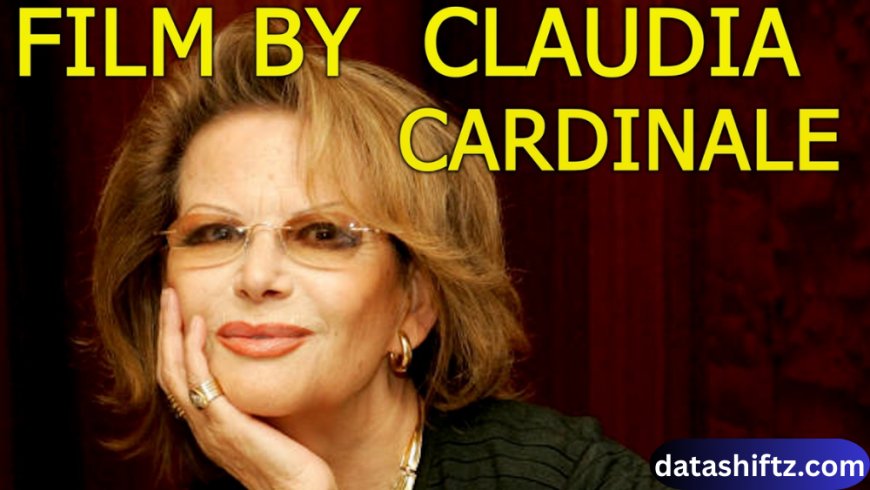Claudia Cardinale: The Timeless Icon of European Cinema

Introduction
Claudia Cardinale is a name that resonates with elegance, talent, and cinematic brilliance. As one of the most celebrated actresses of the 20th century, Cardinale became a symbol of European cinema during the golden age of Italian and French filmmaking. Known for her captivating beauty, powerful performances, and multilingual talent, she worked alongside some of the greatest directors and actors in film history.
From classics like The Leopard and 8½ to her Hollywood appearances in The Pink Panther and Once Upon a Time in the West, Claudia Cardinale’s career spans decades, making her an international legend. This article explores her life, career, impact on global cinema, and why she continues to inspire generations of film lovers.
Early Life and Rise to Fame
Claudia Cardinale was born on April 15, 1938, in Tunis, Tunisia, to Sicilian parents. Growing up in a multilingual environment, she spoke Italian, French, Arabic, and later English.
Her journey to stardom began unexpectedly. In 1957, she won the title of “Most Beautiful Italian Girl in Tunisia”, which led her to the Venice Film Festival. Soon after, she received film offers in Italy, marking the start of her acting career.
Unlike many actresses of her time, Cardinale initially struggled with her voice due to her Tunisian accent. For several years, her lines were dubbed in films, but eventually, she mastered Italian and became known for her deep, distinctive voice.
Claudia Cardinale’s Cinematic Journey
Breakthrough in Italian Cinema
Cardinale’s early career flourished in Italy during the late 1950s and 1960s, often described as the Golden Age of Italian Cinema. She starred in films such as:
-
Rocco and His Brothers (1960) directed by Luchino Visconti.
-
Girl with a Suitcase (1961), a dramatic role that established her versatility.
-
The Leopard (1963), one of her most iconic films, also directed by Visconti.
International Success
By the 1960s, Cardinale’s reputation crossed borders, and she gained international recognition:
-
She starred in Federico Fellini’s masterpiece 8½ (1963).
-
Played opposite David Niven in The Pink Panther (1963).
-
Appeared in Sergio Leone’s Once Upon a Time in the West (1968), cementing her role as a global star.
Later Career and Legacy
In the following decades, Claudia continued to act in European and international cinema. While her fame peaked in the 1960s and 1970s, she remained active well into the 21st century, appearing in films, TV series, and documentaries.
Claudia Cardinale’s Notable Films
| Year | Film Title | Director | Role |
|---|---|---|---|
| 1960 | Rocco and His Brothers | Luchino Visconti | Nadia |
| 1961 | Girl with a Suitcase | Valerio Zurlini | Aida |
| 1963 | 8½ | Federico Fellini | Claudia |
| 1963 | The Pink Panther | Blake Edwards | Princess Dala |
| 1963 | The Leopard | Luchino Visconti | Angelica Sedara |
| 1968 | Once Upon a Time in the West | Sergio Leone | Jill McBain |
| 1982 | Fitzcarraldo | Werner Herzog | Molly |
Achievements and Awards
Claudia Cardinale’s talent has been recognized globally. She has received:
-
The David di Donatello Award (Italy’s top film award).
-
Golden Lion for Lifetime Achievement at the Venice Film Festival (1993).
-
Numerous international honors celebrating her contribution to cinema.
Her performances have influenced generations of filmmakers, actresses, and audiences worldwide.
Why Claudia Cardinale is Considered a Cinematic Icon
-
Beauty and Charisma – Cardinale epitomized Mediterranean elegance and charm.
-
Multilingual Talent – She successfully worked in Italian, French, English, and Spanish films.
-
Collaborations with Master Directors – Worked with Fellini, Visconti, Leone, and Herzog.
-
Versatility – From romantic dramas to epic historical films and comedies.
-
Cultural Ambassador – Represented European cinema on the global stage.
-
Feminine Strength – Many of her characters were independent and strong-willed women.
-
Longevity – A career spanning more than six decades.
-
Awards and Honors – Recognition from prestigious film festivals worldwide.
-
International Appeal – Successful across Hollywood, Italian, and French cinema.
-
Inspiration for Future Generations – Paved the way for European actresses in global cinema.
Claudia Cardinale Beyond the Screen
Apart from acting, Cardinale has been involved in humanitarian work. She has advocated for women’s rights and education and served as a UNESCO Goodwill Ambassador for the Defense of Women’s Rights.
Her off-screen persona reflects her commitment not only to cinema but also to making the world a better place, enhancing her legacy beyond the silver screen.
Conclusion
Claudia Cardinale remains one of the most enduring symbols of European cinema. Her journey from Tunisia to international stardom is a story of talent, perseverance, and cultural impact. Whether in the grandeur of The Leopard, the surreal world of 8½, or the legendary Western Once Upon a Time in the West, Cardinale’s performances continue to inspire admiration.





























